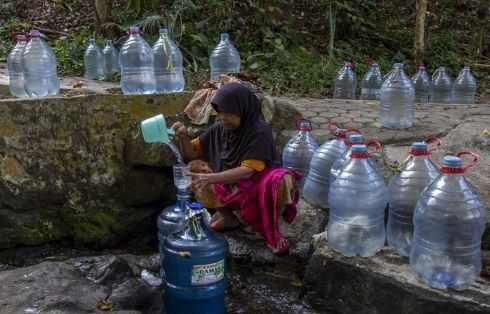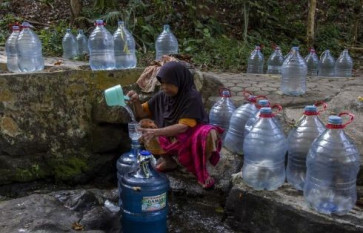Popular Reads
Top Results
Can't find what you're looking for?
View all search resultsPopular Reads
Top Results
Can't find what you're looking for?
View all search resultsConfronting the climate crisis: Water as a lever for climate action
Just as water is essential to supporting life, the water sector is key to climate efforts.
Change text size
Gift Premium Articles
to Anyone
W
e are fast approaching critical tipping points where climate impacts could become irreversible. How we manage the Earth’s water has the potential to either propel us closer to these thresholds or pull us back from the brink.
A meta-analysis of the World Bank’s Country Climate and Development Reports (CCDRs) shows that across the globe, water-related climate risks threaten the very systems that sustain us: our food, health, energy, economies and the ecological networks that support life on Earth.
Unchecked, climate-driven changes in water availability and quality will carry severe economic costs. Regions facing water scarcity could see significant drops in growth due to effects on agriculture, health and incomes.
Under a hot/dry scenario, the Dominican Republic could lose up to 16.7 percent of its gross domestic product (GDP), while a 10 percent reduction in water supply in Türkiye could shrink GDP by 6 percent. In Malawi, droughts increase poverty risk by 14 percent, underscoring how water shortages deepen inequality, particularly in areas lacking water infrastructure.
The wide variability in water projections, such as potential 5-10 percent crop revenue drops in Sahel countries under a hot/dry scenario versus increased livestock yields under a wet scenario, adds uncertainty to economic planning. Effective water management can help navigate these uncertainties and avert the worst outcomes, transforming water from a climate risk into a driver of resilience.
The water sector’s potential to reduce greenhouse gas emissions is often overlooked, yet it shouldn’t be. Currently, it contributes around 10 percent of global emissions, with water utilities alone responsible for around 2 percent, on par with the global shipping industry.
Yet, existing technologies could cut up to 50 percent of energy-related wastewater emissions at zero or even negative cost. By adopting these solutions, water utilities can reduce emissions, improve efficiency and even generate revenue, transforming the water sector from an emissions source to a climate solution.



















